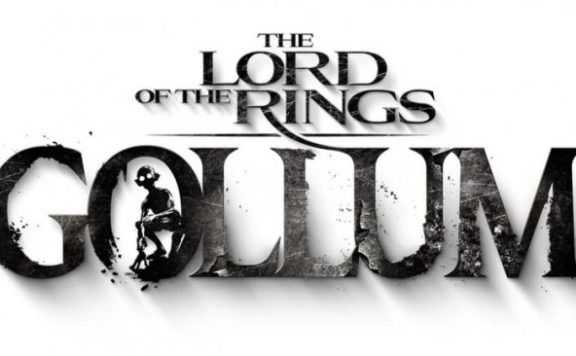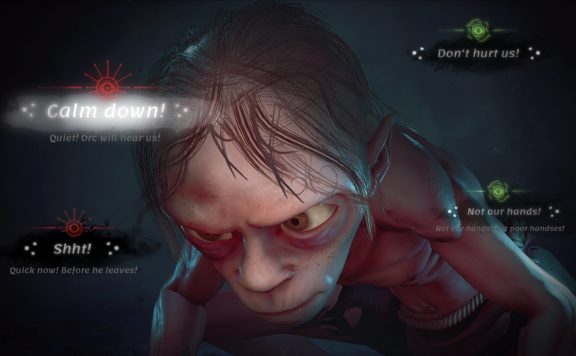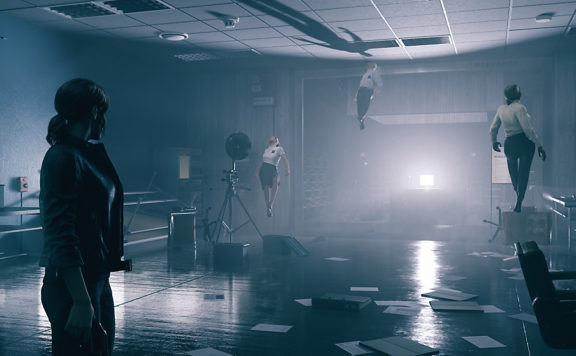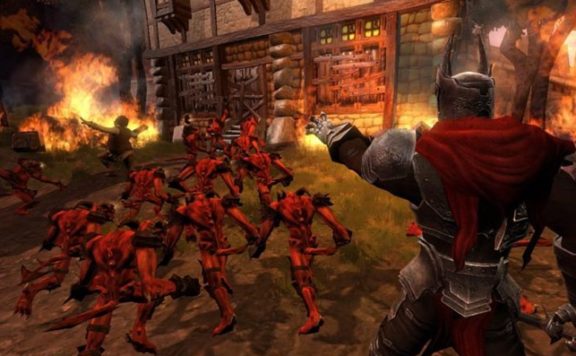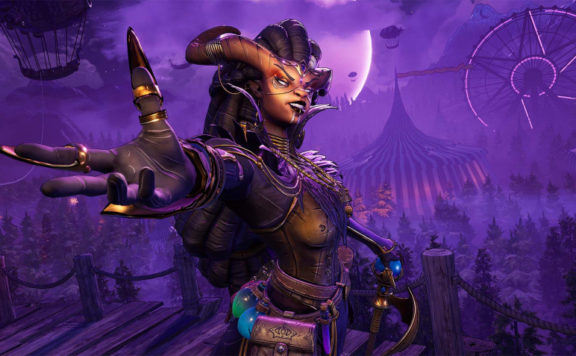Contrary to some beliefs “uniqueness” in a game isn’t always needed to guarantee success. Sometimes in order to succeed a game can tell a great story. Especially one that pivots around an engrossing culture while at the same time borrowing inspiration from a gaming classic. This is exactly what India developers, Nodding Head Games, have done to succeed in their development of Raji: An Ancient Epic. This is our Nintendo Switch review of a warm and endearing platformer called Raji: An Ancient Epic!
A Strong Bond, A Sister’s Love For Her Brother
The story behind Raji: An Ancient Epic sits upon a universe set in ancient India. This tale is based on Hindu and Balinese mythology. Granted this is probably a topic not readily known by most of our readers. It’s certainly one that strays quite far from the typical Fantasy world of elves and mages. The story unfolds in beautiful artwork and nicely done voice acting. It’s less about cut-scenes and more about the gods that are helping Raji forge her destiny.
In this action-adventure game, you control a young girl named Raji. She has been chosen by the gods to stand against a demonic invasion that has occurred in the human realm. The demons are looking to redeem themselves after their defeat in the last great war suffered a thousand years ago. They have challenged the gods who humiliated them. The demons intimidate by invading the human realm, threatening humans with extinction. As part of the demons’ chaos, cities and fortresses fell, and young children were abducted from their homes. Raji and her brother, Golu, were separated during the chaos. Raji has taken it upon herself to find her brother and put an end to this war. She proves to be a wonderful barefoot heroine that everyone will fall in love with.
Inspired Gameplay
Gameplay in Raji: An Ancient Epic takes place in a combination of isometric and 2D side-scrolling views. One suggestion is a freeform camera would have been nice here to help line up some jumps. Even so, the lack of said feature didn’t encumber gameplay.
Raji is equipped initially with a “Trishul” which is a staff-like object. One thing that some gamers might not like is that there are several “lulls” in the action where story parts are told. This usually means running through several screens, pausing, selecting ‘Y ‘to trigger the gods’ spoken dialogue, and then proceed to the next encounter. Initially, this caught me by surprise as during the first several minutes of the game there were no battles, button mashing, etc.
The game does a fantastic job of easing you into the mechanics that include scaling walls and backflipping, slamming the Trishul into the ground, dodging, etc. In true Prince Of Persia fashion, you’ll jump over ravens, run along walls and hang by ledges. You’ll typically be on the run, most times at your own pace, until the next encounter. The controls were responsive and combat played well in docked as well as undocked mode.
Fun And Challenging Encounters
When an encounter triggers you’re usually confined to within a limited boundary so wide avoidance gapes are a challenge at times. The dodge and roll mechanic helps make up for this as well as ranged capabilities on most weapons.
Enemy encounters are unique as are the bosses themselves. A lot of encounters involved fending off waves of groups of mobs before you can proceed. One unique thing is on-screen clutter is kept to a minimum. Your hit counts, and enemy hit counts, are relayed via a flowery pattern around your avatar and the enemies’.
Interesting, Not Complex Puzzles Too
The story and gameplay also include some nice puzzles, typically sliding/rotating match games. These puzzles are another avenue where the cultural artwork was included to the fullest. The proved to be fairly simple but were another opportunity to enjoy the scenery.
The game does encourage some exploration, but it is mild, at best. Taking a turn off the beaten path might yield you a dead-end or a shiny globe. Some of these act like life hearts from Zelda. While others might contain additional weapons or weapon skills.
Speaking of weapon skills, the screen where you slot and un-slot these abilities seemed underwhelming with details. Initially selecting skills came off a bit confusing. It also wasn’t immediately clear how to trigger these new skills.
Beautiful Vistas And Artwork Abound
The scenery and storyboards throughout the game were inspired by Indian mythologies such as Mahabharata and Ramayana, and by the medieval architecture of Rajasthan. As mentioned, there are quiet moments between battles where this art is used to help tell the story. The game’s environment is drawn in the Pahari art style and combines hand-painted textures, several of which are rendered in 3D.
Playing Raji: An Ancient Epic in undocked mode, the artwork was crisper versus playing docked on a large screen where sharpness is sacrificed a bit. This is no fault of the game but more to a weakness of the Nintendo Switch.
Note: Our copy was reviewed on the Nintendo Switch with a code provided by PR.
COMPARE TO: Prince Of Persia










